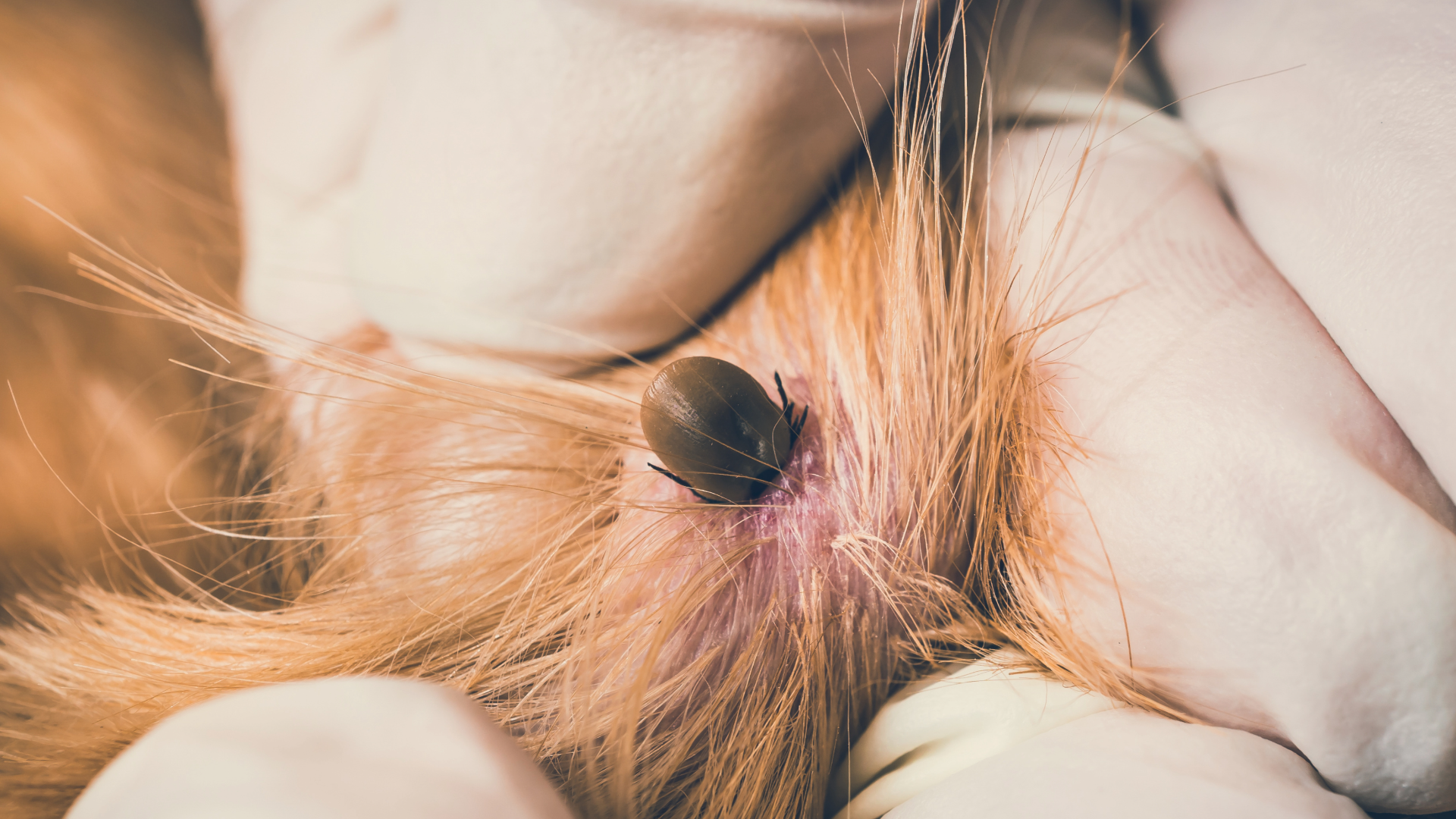Tick Season is Here! Protect Your Pet with Pet Health Plans & Tick Removal Tips

Don’t Get Ticked – Off
Published on: Mar 10, 2022
As the days get longer and the weather gets (a bit!) warmer, a lot of us will be enjoying spending more time outdoors with our pets – but spring is also the start of tick season so it’s important to be aware of this tiny pest.
Ticks are small spider-like biting parasites which latch on to both animals and humans and feed on their blood. They have a round body, eight legs and a small head with really powerful jaws. Ticks are very tiny when they attach, but their small bodies soon become larger as they become engorged with blood, growing to around the size of a pea and usually changing colour, going from brown to silvery grey.
There are many different species of tick present in the UK, the most common being the sheep tick, also known as the castor bean tick Ixodes ricinus, which will also happily feed on your pet dog, cat and ferret – and you!
At the very least, ticks will be an irritation to your pet, causing redness and soreness around the bite area. One tick may be annoying, but you’ve probably also seen the horror pictures of animals swamped with dozens of them, which will be really debilitating.
However, ticks also transmit diseases which can be potentially life-threatening to your pet, such as Lymes disease and Babesiosis. Lymes disease (Lyme borreliosis) attacks the central nervous system causing kidney damage whilst Babesiosis attacks the red blood cells causing anaemia.
Preventing your pet from acquiring ticks is the key factor in protecting your pet from tick borne diseases. Shepton and Wells Vets offer a simple and cost-effective Pet Health Plan to help us, help you ensure that your pet is fully vaccinated and protected from parasitic infection and disease. There are different options available so pop in and have a chat with our friendly staff who will be happy to help answer any questions.
It’s also a good idea to be aware of where you walk with your pet. Ticks are commonly found in woodland, grassland and heath areas – especially where there are lots of deer or sheep – but they can also be found in your garden in you live in an area with lots of wildlife. Unlike fleas, they don’t jump onto their ‘prey’ but attach themselves as your pet brushes past them, so keeping your dog out of hot spots and long grass can help to reduce the risk of transmission.
Prevention is key, but it’s also not uncommon for ticks to still find their way onto your pet so it’s important to check regularly for ticks and to remove them as quickly as possible. The best time to check is when you get back from a walk, or when you’re bathing your pet. Run your hands over them, parting the fur, and feeling for any small lumps and bumps – pay particular attention to the head, neck, ears and feet which are popular target areas for ticks. Ticks can sometimes look a bit like a small wart, but on closer inspection you’ll see their tiny legs!
Tick removal can be difficult as it’s important that you get the whole tick out, without leaving the mouth parts buried in your pet’s skin. It needs to be done correctly using a tick hook, which closes the mouth parts and twists the tick out safely. Causing trauma to the tick by pulling it out – or as some old wives’ tales suggest, burning, suffocating it in Vaseline, or applying nail polish – could cause the tick to inject bodily fluids into the bite wound. It’s the transmission of these bodily fluids into the bloodstream that increases the risk of disease. There is also the risk of infection at the tick site, if the entire head is not removed correctly.
I hope you and your pets enjoy the better weather and the great outdoors but please be aware of ticks. Prevent them from targeting your pet, routinely check for them and – if you find one – remove it carefully; and there will be no need to get ‘ticked off’ this tick season!

Author –
Pamela Anderson England
Spring is tick season! Learn how ticks can harm your pet & how to prevent tick bites with Shepton & Wells Vets. Pet Health Plans, tick removal tips & more!Spring is tick season! Learn how ticks can harm your pet & how to prevent tick bites with Shepton & Wells Vets. Pet Health Plans, tick removal tips & more!
tick season | ticks on pets | tick borne diseases | Lymes disease | Babesiosis | pet health plan | Shepton & Wells Vets | tick removal | tick removal tool | tick hook
More Articles from Pam
Read More
Caring for your pet as we do our own

At Shepton and Wells Vets, we understand what your pets mean to you, and so our Pets team aim to care for each and every one of them as we would do our own.
We care about your pet
Our primary focus is keeping them fit, happy and healthy with comprehensive and effective preventative healthcare, advice and treatment.
We care about you
We aim to communicate clearly and honestly with you, and discuss different treatment options so that you can make the right informed choices for you and your pet.
We care about clinical excellence
We take pride in providing a high level of medical and surgical care, working together as a team to do the very best we can for your pet.











